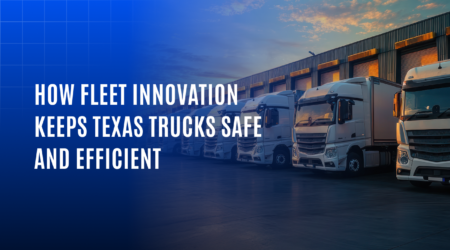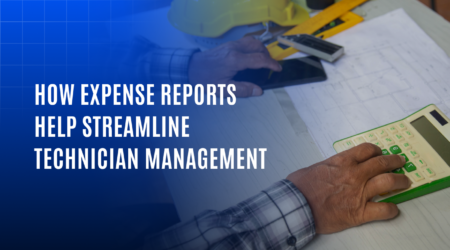Why digitising the waste collection process is gaining momentum across Europe

Forget what you know about waste collection, because across Europe, it’s no longer just about collecting bins. It’s about meeting EU deadlines, keeping up with recycling mandates, handling seven different waste streams separately, and making sure every collection route is documented, verified, and compliant.
Municipalities and contractors are under pressure. And it’s not just political. It’s operational.
With deadlines like biowaste segregation by December 2023 and textile waste separation by January 2025, local authorities are racing against time to modernize. At the same time, citizens expect cleaner streets, faster pickups, and better digital interaction — all while EU policies push toward a circular economy.
But here’s the truth: these challenges aren’t impossible. They’re just unmanageable without the right technology.
What’s driving this digital shift?
Across the EU, the regulatory landscape is tightening — and digitisation is no longer optional. Here’s what’s behind the push:
- The waste framework directive: It’s the backbone of European waste policy. It doesn’t just push for recycling — it demands traceability, documentation, and measurable results.
- Separate collection mandates: From biowaste to textiles, e-waste, and even hazardous household waste, EU laws now require clear, separate handling processes — and systems to prove it.
- Landfill reduction targets: By 2035, member states must cut landfill waste to 10% or less. That means better diversion strategies, cleaner data, and tighter control over where waste ends up.
- Producer responsibility rules: Manufacturers are now responsible for the lifecycle of their packaging, electronics, and batteries — but it’s local waste handlers who need to report and track that activity properly.
Europe is going green — and it’s asking every city, region, and contractor to prove they’re doing the same.
Key challenges waste operators face today
While the EU provides the legislative push, on the ground, cities face very real limitations:
Outdated systems
Many municipalities still operate on spreadsheets, paper logs, or siloed systems that can’t scale or sync with EU reporting needs.
Invisible operations
From missing proof of collection to absent records of where waste was dumped, a lack of transparency opens the door to inefficiency and citizen complaints.
Missed compliance deadlines
With complex rules and varying waste streams, tracking which bin went where, when, and by whom is nearly impossible manually.
No visibility on helpers and drivers
Who’s working? Who skipped duty? When did the team enter a landfill? These questions remain unanswered in the absence of field data.
Citizen trust is hard to maintain
Public complaints about missed bins or unclean streets are often difficult to verify or resolve without photo proof or time logs.
How digital platforms are solving this
Let’s break down exactly how the waste management software can making European waste operations cleaner, leaner, and regulation-ready.
-
Route automation & Zone-based scheduling
The system auto-assigns collection jobs based on zone, date, or vehicle. Real-time tracking shows managers exactly which bins are cleared, which zones are pending, and which routes need reassignment—reducing missed pickups and ensuring consistent service.
Benefit: Less chaos, more coverage. Every zone knows what’s happening and when.
-
Driver and helper monitoring
With individual log-ins and shift-based tracking, the software helps operators assign and evaluate every worker’s performance. Attendance logs, route completion status, and duty break records are automatically updated.
Benefit: No more guessing who was on the job. Labor accountability becomes a click away.
-
Disposal site and Load monitoring
Load sensors and integrated disposal logs track each vehicle’s waste collection and dumping activity. The system records disposal data at every landfill, transfer station, or incinerator and links it to the corresponding trip, simplifying compliance documentation.
Benefit: Aligns with landfill diversion mandates and ensures waste actually reaches its intended destination.
-
Visual proof of collection
Photos of bins before and after pickup, timestamped location logs, and sweeping activity records help close the loop. When complaints arise, the system provides verifiable data to resolve them quickly.
Benefit: Less complaint handling. More visible results.
-
Citizen issue tracking
Residents can raise service requests or complaints directly through integrated platforms. These get assigned to the relevant team, tracked in real-time, and resolved — improving accountability and citizen satisfaction.
Benefit: Build better public engagement while proving performance to authorities.
-
Alerts and Reports for managers
From skipped bins and delayed disposals to unreported absenteeism, managers receive real-time alerts to act immediately. The system auto-generates reports for routes, helper logs, collection summaries, and disposal activity, supporting both internal reviews and external audits.
Benefit: Build better public engagement while proving performance to authorities.
Why this is the right time to act
Europe’s shift toward circular economy targets, combined with rising public demand for cleaner streets and accountable services, means the waste sector can’t stay analog any longer. For municipal leaders and private service providers, smart software bridges the gap between high-level EU targets and day-to-day on-ground realities.
Whether you’re dealing with biowaste separation in Belgium, landfill reduction in Bulgaria, or plastic tracking in Portugal — a single software platform can unify operations, reporting, and compliance.
Conclusion: Cleaner cities need smarter systems
Smart waste management isn’t just about tracking bins — it’s about controlling everything from drivers to disposal. It’s about ensuring every route has a reason, every landfill has a log, and every helper’s shift is recorded.
Europe’s waste challenges are complex, but with the right digital platform, they’re absolutely solvable.
- Better compliance
- Real-time coordination
- Automated reporting
- Proof-based accountability
The future of waste collection across Europe isn’t manual. It’s mapped, monitored, and measurable.




